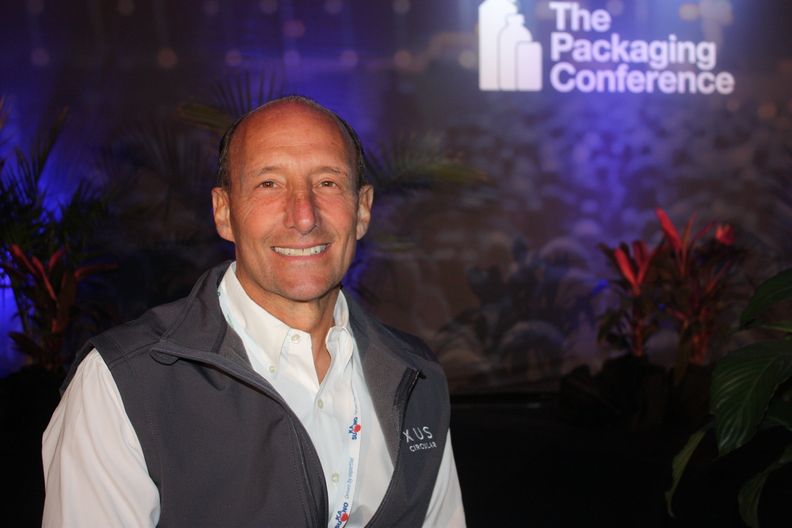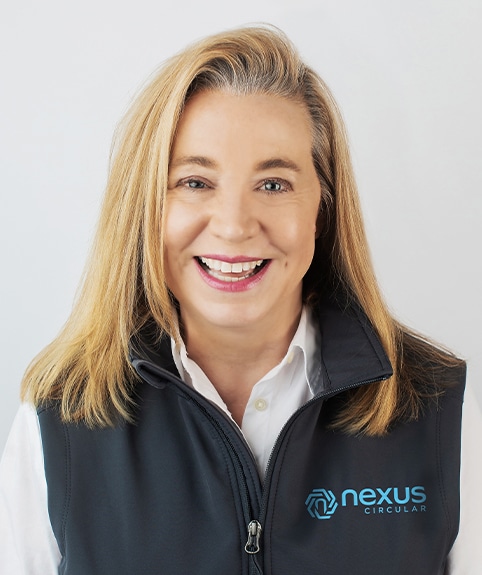Plublisher: Plastics News
By Jim Johnson
Austin, Texas — The one key thing to successfully process plastics through pyrolysis is knowing that there is just not one key thing.
Eric Hartz, as president and co-founder of Nexus Circular LLC, points to plastic recycling numbers and had this to say at the recent Packaging Conference in Austin: “We all know this problem is huge. Waste plastic is significant.”
“Profitability and scalability really doesn’t mean doing a few things well,” he said. Instead, people have to “hundreds of little things, and I usually say crappy things, really well. It’s just very difficult to do.
“This is not a flux capacitor from ‘Back to the Future’ where you just throw a bunch of garbage in and you get nuclear fission. It’s very complicated to make that economic and scalable,” Hartz said.
Nexus converts certain plastics — high and low density polyethylene, polystyrene and polypropylene — through pyrolysis to feedstock that can be used to then create new plastics.
The company only targets plastics that already have been missed by traditional recycling efforts.
“In our case,” he explained, “everything we take is 100 percent landfill bound. We are not trying to compete with mechanical [recycling]. We are not trying to pull from other sources. It was going to be in a landfill or potentially burned,” he said.
While the company concentrates rescuing plastics before they are buried or burned, the company also has make sure the material has value to extract while keeping acquisition costs low.
“You have to buy your feedstock intelligently. You have to be really good at keeping your costs down,” he said. “Feedstock sourcing is not a problem. If we wanted to pay $1 a pound, we can get all the feedstock we want. But we will blow up our economics. We average about 5 to 8 cents per pound,” Hartz said. “We try to purchase smart and then we do some work on our end as well.”
Investors include Braskem, Printpack and Chevron Phillips Chemical, all well-known corporate names attached in one way or another to the plastics industry. But the lead investor in Nexus is Cox Enterprises, a $21 billion company that makes its money through the automotive and broadband businesses.
Nexus, which is producing at commercial scale, has some heavy hitting financial backers, but Hartz said making the company successful also means keeping a close eye on both operating expenses and capital expenses.
The company does as much work as possible in-house, including engineering and software development, to keep costs in check to create a lower break-even number. While he describes today as a “supply constrained market” in terms of output, Nexus ultimately realizes the situation ultimately will turn into a commodity market as more companies find success in the chemical recycling of plastics.
“You’ve got to be able to win, and the low cost supplier wins,” Hartz said. “One day there is going to be a lot of supply out there. There are a lot of players in this space. So we just make sure that if we are the lowest cost producer we can maintain that highest margin.”
Hartz, whose company operates a plant in Atlanta and aspires to open new locations elsewhere, told the conference that creating scale is a difficult challenge for those working with pyrolysis, which uses heat in the absence of oxygen to depolymerize plastics.
Success, he said, can be found locally but difficult to replicate across the board. “Scaling is one of the most difficult things to do, in any industry. You might get the technology and the economics right, but if you can’t scale it, you are in trouble,” he said.
Nexus has developed a modular system that will allow the company to install new capacity less expensively on a cost-per-ton basis, Hartz said.

